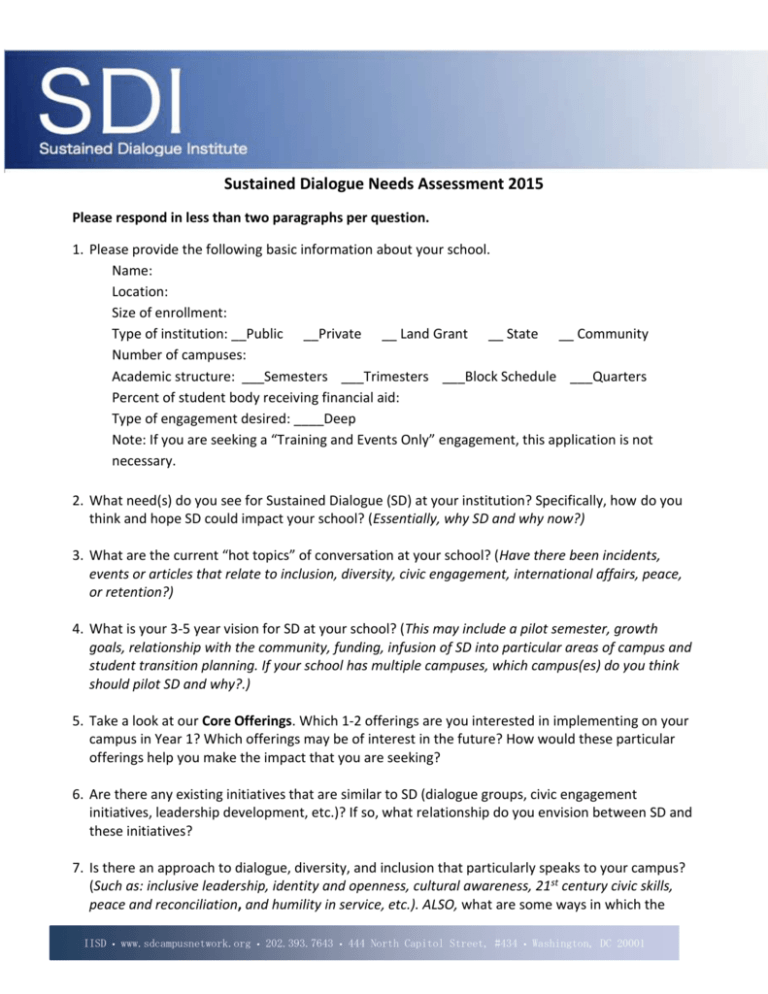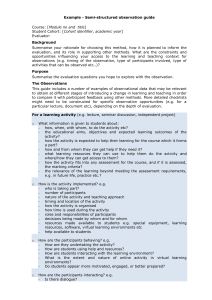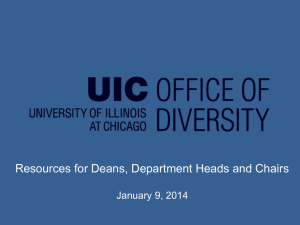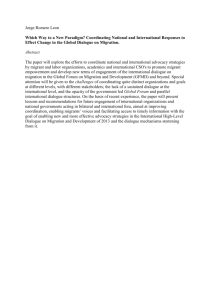Sustained Dialogue Needs Assessment 2015
advertisement

Sustained Dialogue Needs Assessment 2015 Please respond in less than two paragraphs per question. 1. Please provide the following basic information about your school. Name: Location: Size of enrollment: Type of institution: __Public __Private __ Land Grant __ State __ Community Number of campuses: Academic structure: ___Semesters ___Trimesters ___Block Schedule ___Quarters Percent of student body receiving financial aid: Type of engagement desired: ____Deep Note: If you are seeking a “Training and Events Only” engagement, this application is not necessary. 2. What need(s) do you see for Sustained Dialogue (SD) at your institution? Specifically, how do you think and hope SD could impact your school? (Essentially, why SD and why now?) 3. What are the current “hot topics” of conversation at your school? (Have there been incidents, events or articles that relate to inclusion, diversity, civic engagement, international affairs, peace, or retention?) 4. What is your 3-5 year vision for SD at your school? (This may include a pilot semester, growth goals, relationship with the community, funding, infusion of SD into particular areas of campus and student transition planning. If your school has multiple campuses, which campus(es) do you think should pilot SD and why?.) 5. Take a look at our Core Offerings. Which 1-2 offerings are you interested in implementing on your campus in Year 1? Which offerings may be of interest in the future? How would these particular offerings help you make the impact that you are seeking? 6. Are there any existing initiatives that are similar to SD (dialogue groups, civic engagement initiatives, leadership development, etc.)? If so, what relationship do you envision between SD and these initiatives? 7. Is there an approach to dialogue, diversity, and inclusion that particularly speaks to your campus? (Such as: inclusive leadership, identity and openness, cultural awareness, 21st century civic skills, peace and reconciliation, and humility in service, etc.). ALSO, what are some ways in which the IISD www.sdcampusnetwork.org 202.393.7643 444 North Capitol Street, #434 Washington, DC 20001 campus describes or markets itself? (What sorts of students does it attract? What sort of experience does it pride itself in offering?) 8. Which administrators in offices such as the President’s Office, Student Life, Chief Diversity Officer, Civic Engagement and Service Learning, etc. have been or should be approached regarding this initiative? What interests might they have? 9. What is the process of securing funding? Please provide information on any offices that have been contacted for funding, proposals that have been submitted, etc. Please include the month when the campus’ fiscal year begins. 10. There are several roles that are important for supporting and maintaining a strong SD chapter. Please fill in the following table to help us better understand the potential structure of SD at your institution. (Details of each role can be found below the chart.) Identified? Year(s) or Name(s) Email(s) Involvement to Date (Y/N) Title(s) Leadership Team Active Advisor(s)/ Office(s) that may “house” SD Supporters Key SD Roles Leadership Team: These faculty, staff or students work with advisors, supporters, and others to bring Sustained Dialogue to campus. Once the school has become an SDCN member, the team recruits others to participate in dialogue groups, coordinates trainings, builds events that further the group’s mission, and works toward becoming a resource to the larger campus community. Advisor(s): Advisors work closely with the leadership team to ensure they are supported in their efforts to organize and moderate SD. Advisors should be willing to attend meetings with leaders, aid in brainstorming dialogue topics and other events, be attentive to program structure and growth goals, help troubleshoot any challenges that arise. Ideally, the advisor has past dialogue experience and attends Sustained Dialogue training to become an expert in the unique SD model. Often, advisors work in the campus office or center that “houses” the SD program. Supporter(s): Supporters contribute to SD recruitment efforts, program evaluation, funding, and/or general name recognition. Champions typically interact with the leadership team or other members of SD less frequently than Advisors, but are committed to promoting and maintaining institution-wide support for the SD initiative. Please feel free to contact rhonda@sdcampusnetwork.org to submit your assessment or seek further information. We look forward to exploring possibilities for Sustained Dialogue at your school! IISD www.sdcampusnetwork.org 202.393.7643 444 North Capitol Street, #434 Washington, DC 20001







